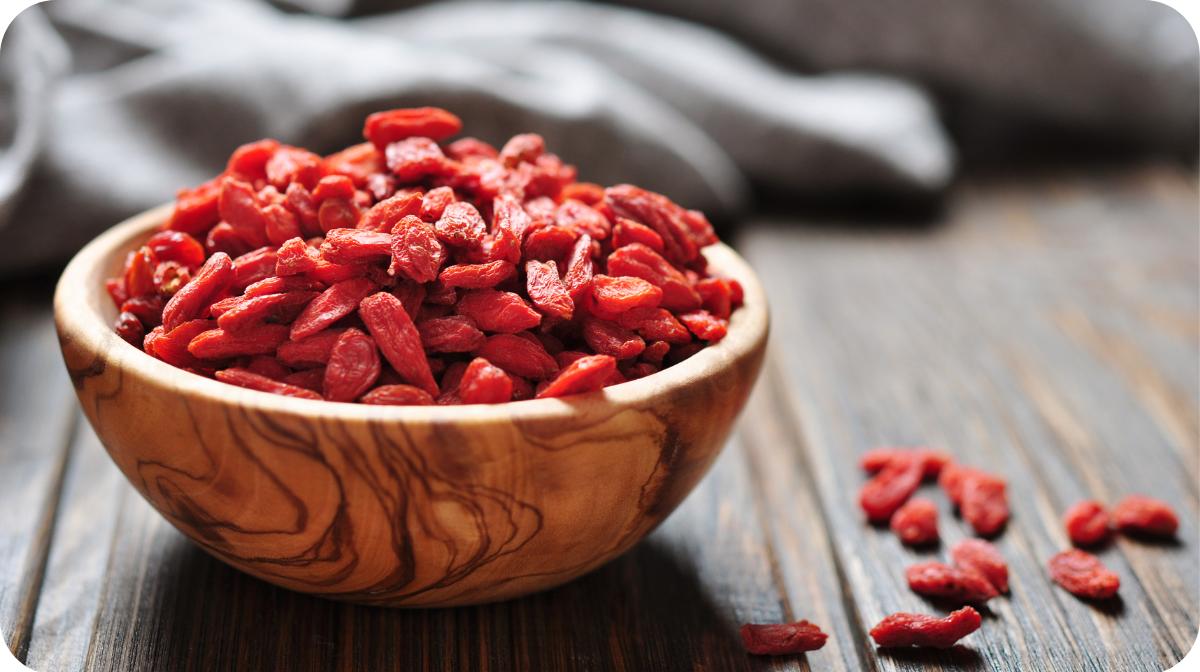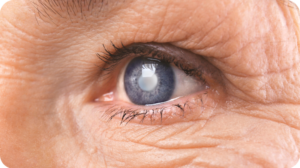Eastern medicine has exploited the benefits of dried Goji berries (also known as wolfberries) for thousands of years. Now, western medicine is exploring the scientific basis for that use and uncovering some exciting evidence. Among other potential health benefits, it appears Goji berries may delay, and even prevent, the vision deterioration known as age-related macular degeneration (AMD).

Macular degeneration involves damage to the macula, a small part of the eye’s retina. Sufferers experience a blurry area, or a black spot, in the center of their field of vision. Although some types of macular degeneration can be slowed or stopped with drugs and laser eye therapy, certain types have no treatment. The condition usually worsens over time. Age-related macular degeneration is, as it sounds, a version of the condition associated with aging.
Turning to Goji Berries
A recent study completed by researchers at the University of California, Davis, indicated that dried Goji berries may play a role in treating not only age-related macular degeneration, but other vision issues as well. In fact, the findings may point to a wider range of health benefits from consuming this tart dried fruit.
Participants in the study, ranging in age from 45 to 65, consumed 28 grams of dried Goji berries five times a week, for three months. The result of the study was an increased density of protective pigments in the eyes, specifically lutein and zeaxanthin. Those antioxidants play a role in filtering blue light and harmful UV rays in the eye, limiting ocular damage.
The control group, who consumed general eye-health supplements, did not experience the increase.
Beyond the Eye
Many holistic proponents believe that Goji berries are a superfood, and that contention is backed up by ample research.
- Immune support. The antioxidants in these edibles fight inflammation and free radicals, and the berries’ abundant vitamins A and C help the immune system battle infection and head off disease before it takes root.
- Anticancer. High amounts of antioxidants fuel cancer-fighting cells. Research on mice has shown that the berries may even inhibit tumor growth, and boost the body’s response to cancer treatments.
- Skincare. Goji berries are rich in the beta-carotene that aids healthy skin, reduces irritation, and may even slow skin aging.
- Blood sugar. Early studies indicate that Goji berries can play a role in maintaining healthy blood sugar and insulin levels. The berries also appear to increase HDL, the “good” cholesterol.
It’s easy to consume these edibles. They are right at home in a morning bowl of oatmeal, as one of many fruits in a smoothie, and even baked into muffins. They can be used in all the ways that dried blueberries or cranberries would be.
The health benefits of Goji berries continue to be studied and researched, but it appears there is little downside to making them a regular part of your diet. However, one important caution: Goji berries can interfere and interact with certain prescription drugs. If you are thinking about making these berries a regular part of your diet, consult your physician first.
Share some love if you like this post!







